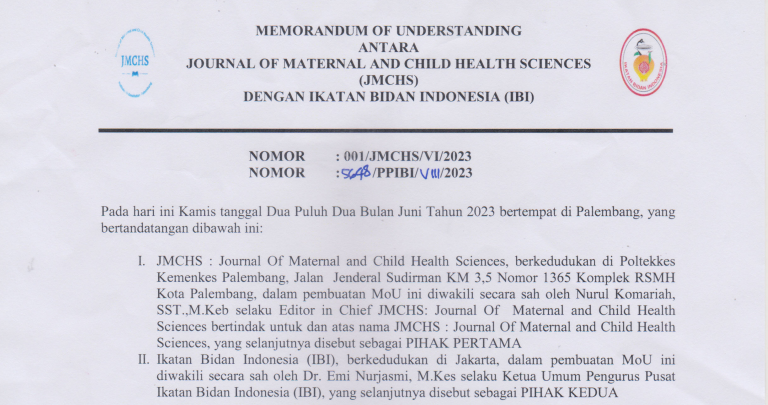Relationship of Knowledge and Addition Food with Increase Weight at Baby 6 – 12 Month
Abstract
Background: The delay in providing additional food results in babies suffering from nutritional deficiencies in various forms (Suhardjo, 2013). In OKU District, out of 28,360 children under five were found to have a nutritional status of 1.1%, short toddlers 1.8% and underweight children 0.8% (Dinkes OKU , 2019). Profile of theDinkes OKU, 2019, at the Puskesmas Tanjung Agung , there were 0.1% malnutrition. The Aim of this study was to determine the relationship between knowledge and supplementary feeding with increased body weight in infants aged > 6 months. Methods: The research design is descriptive analytic with a cross-sectional approach. The population is all mothers who have babies over 6 months in DesaTalang Jawa. The sampling technique is accidental sampling. Sample is 31 respondents,. Analysis with chi-square statistical test (95% confidence level, 0.05 significance).
Results:Good knowledge of respondents 19.4%, respondents who provide additional food 90.3% and weight gain of children 93.5%. Statistical test : knowledge and supplementary food variables were not associated with weight gain in children ( p value 0.645 and 0.813 ) .
Conclusion: There is no relationship between knowledge and supplementary feeding with baby's weight gain.
Copyright (c) 2021 JMCHS : Journal of Maternal and Child Health Sciences

This work is licensed under a Creative Commons Attribution-ShareAlike 4.0 International License.
Authors who publish with this journal agree to the following terms:
- Authors retain copyright and grant the journal right of first publication with the work simultaneously licensed under a Creative Commons Attribution License that allows others to share the work with an acknowledgement of the work's authorship and initial publication in this journal.
- Authors are able to enter into separate, additional contractual arrangements for the non-exclusive distribution of the journal's published version of the work (e.g., post it to an institutional repository or publish it in a book), with an acknowledgement of its initial publication in this journal.
- Authors are permitted and encouraged to post their work online (e.g., in institutional repositories or on their website) prior to and during the submission process, as it can lead to productive exchanges, as well as earlier and greater citation of published work












